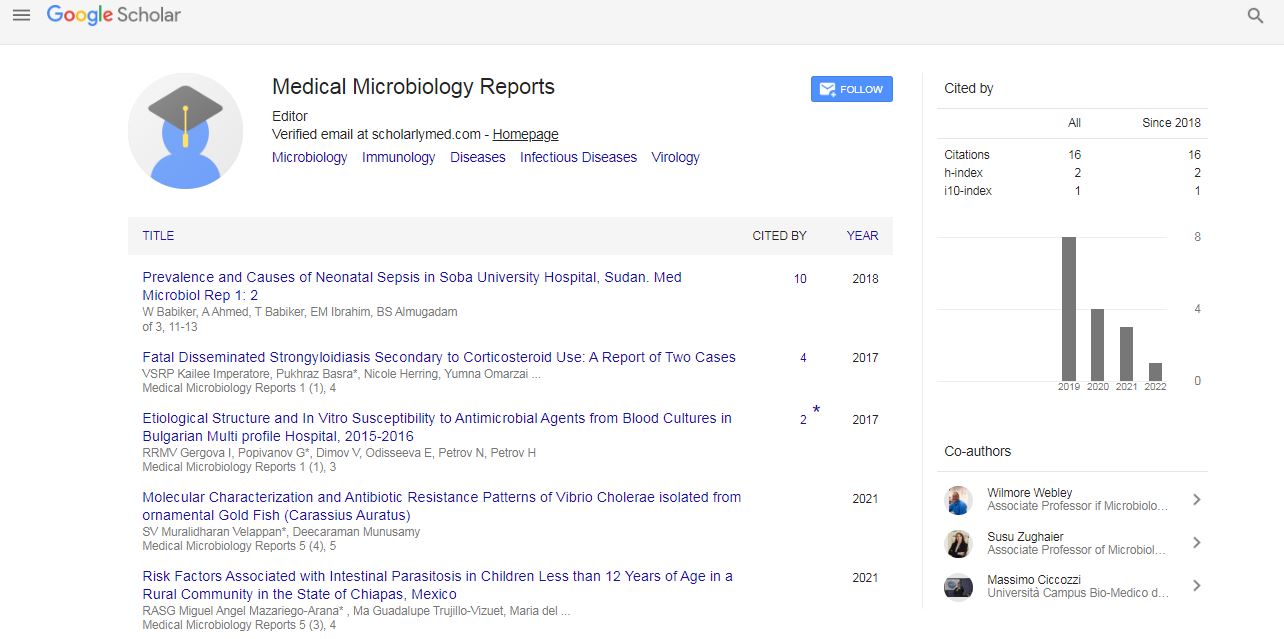Development of Next-Generation probiotics - Bugs to tackle metabolic syndrome
Mathieu Millette
Bio-K Plus International inc, Canada
: Med Microbiol Rep
Abstract
Type 2 diabetes (T2D) is associated with an increased risk of cardiovascular diseases (CVD), health expenditures of 54B USD across North America and 43% of all deaths in Canada [1]. Intestinal dysbiosis (microbial imbalance) has been clearly associated with metabolic syndrome (MetS), T2D and CVD [2]. Treatment with some traditional lactobacilli probiotics has been shown to moderately attenuate microbiome dysbiosis in MetS, normalize blood lipid levels in hypercholesteremic subjects and exert some positive effects on glycemic biomarkers in T2D patients [3], suggesting that probiotics could help reduce metabolic abnormalities in T2D. However, selection of these bacterial cocktail has been mostly empirical and little is known about their mechanisms of action. Hypothesis-driven selection of novel types of gut microbes targeting specific pathways involved in MetS will pave the way for more effective next-generation probiotics. Gut inflammation reduction, increased production of short chain fatty acids (SCFA) and bile salt hydrolase activity are among the targeted pathways to control further progression of MetS to T2D and CVD. Although multi–omics technologies are essentials to reach this objective, strong knowledge of basic microbiology of the anaerobes is also crucial in order to isolate the bacterial candidates. Technical and regulatory challenges will also be discussed in more details.
Biography
E-mail: MMillette@biokplus.com
 Spanish
Spanish  Chinese
Chinese  Russian
Russian  German
German  French
French  Japanese
Japanese  Portuguese
Portuguese  Hindi
Hindi 
